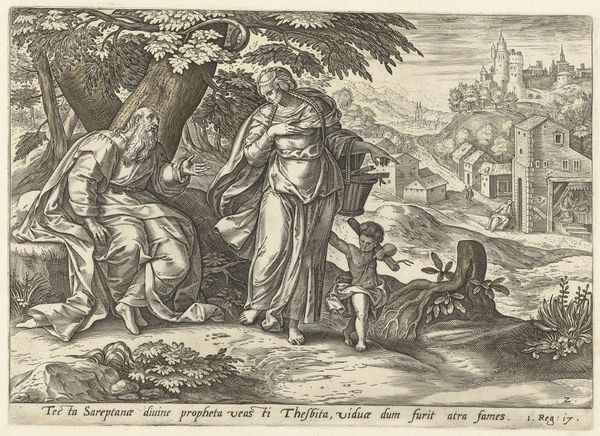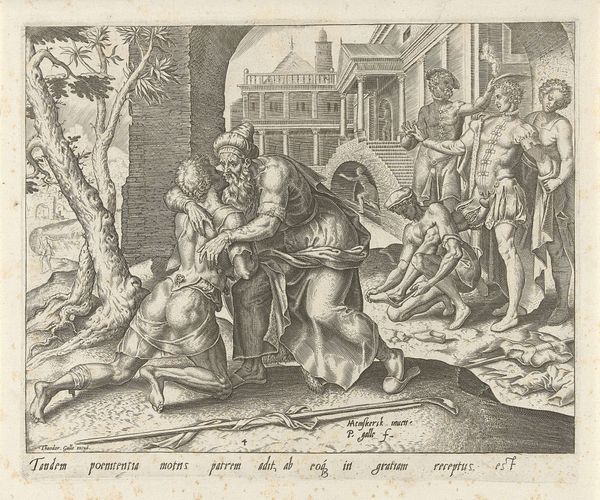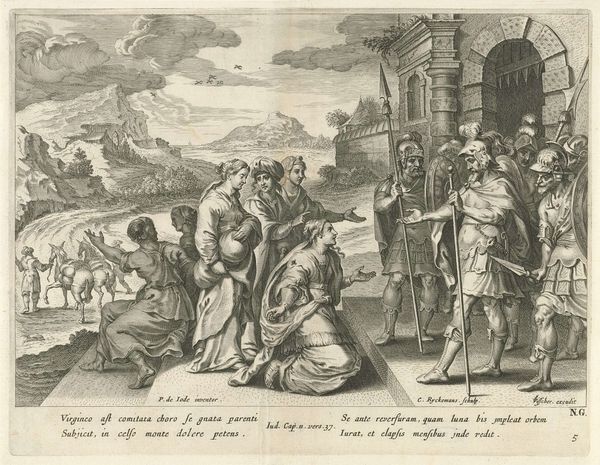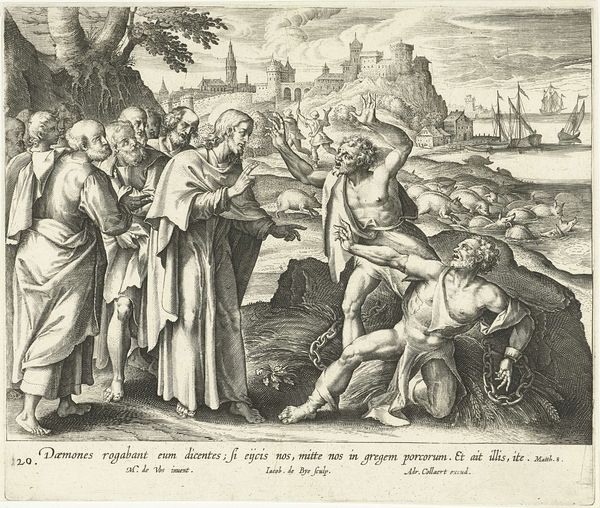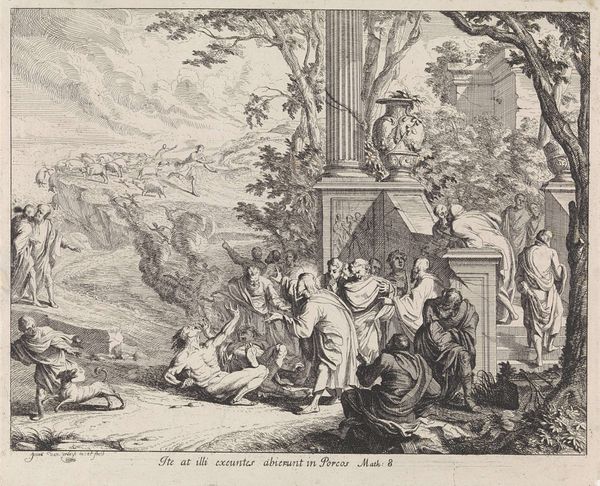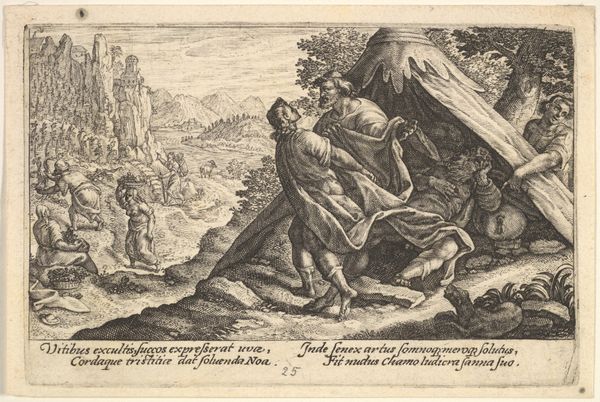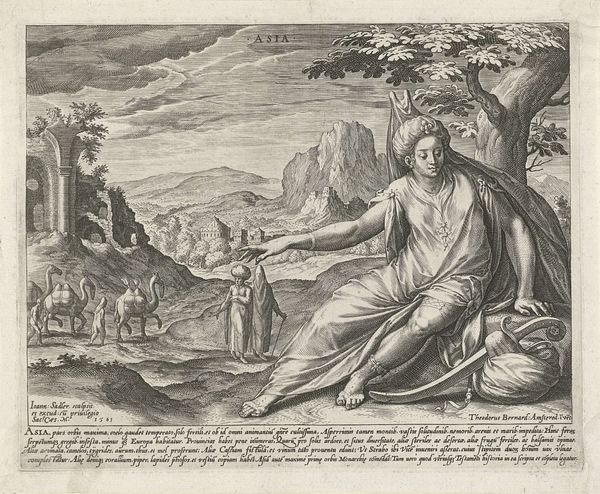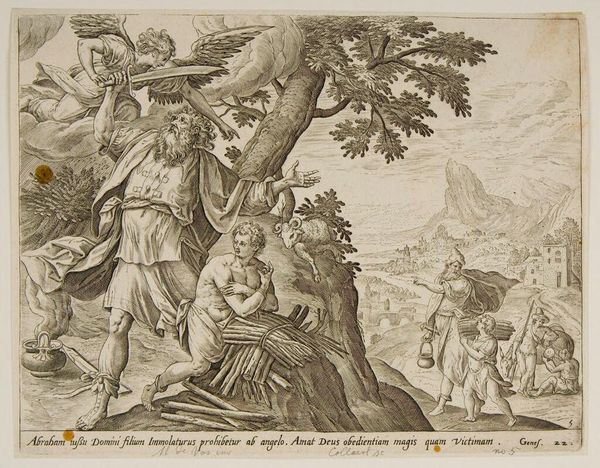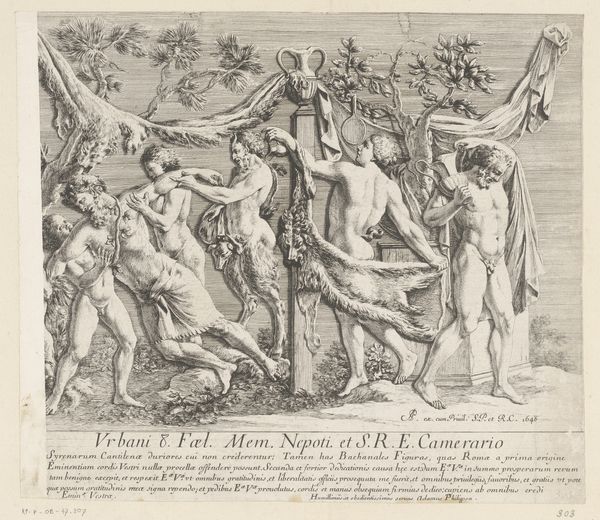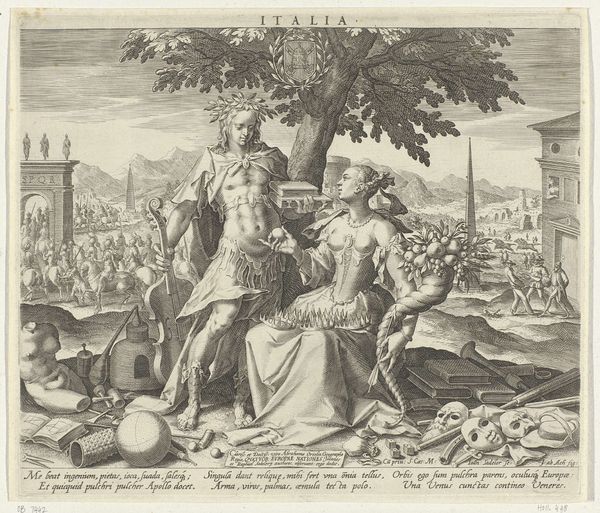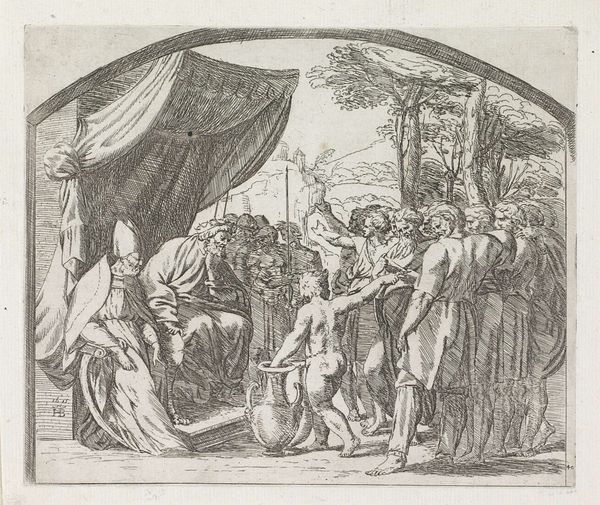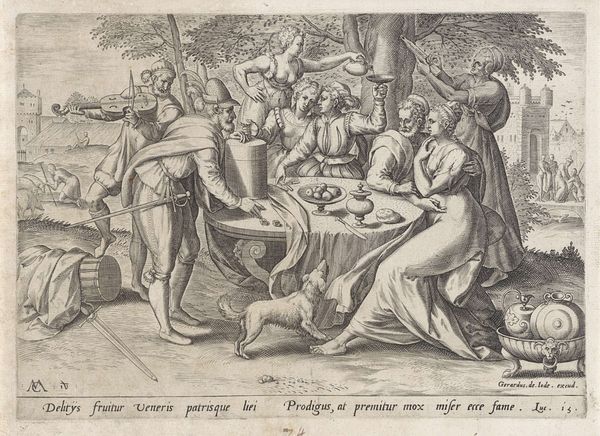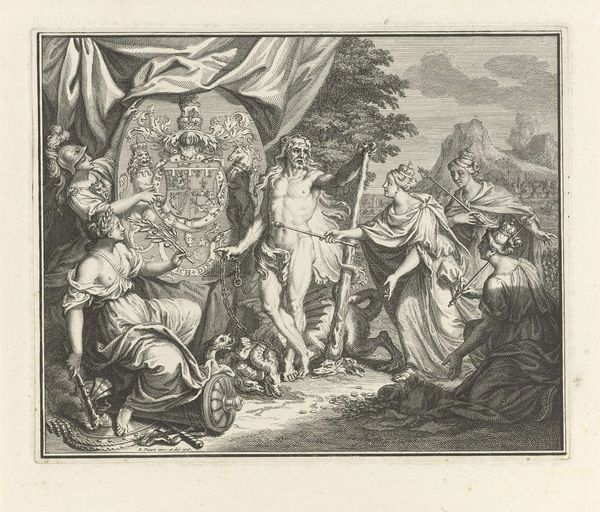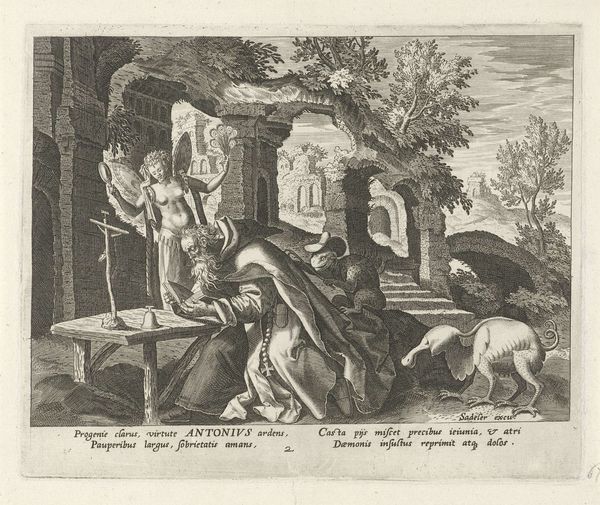
De vrouwen van de Gally weerhouden hun mannen om tegen elkaar te vechten before 1652
0:00
0:00
zachariasdolendo
Rijksmuseum
drawing, print, intaglio, paper, ink, engraving
#
drawing
#
comic strip sketch
#
narrative-art
#
baroque
#
mechanical pen drawing
# print
#
intaglio
#
old engraving style
#
figuration
#
paper
#
personal sketchbook
#
ink
#
sketchwork
#
pen-ink sketch
#
pen work
#
sketchbook drawing
#
genre-painting
#
history-painting
#
storyboard and sketchbook work
#
sketchbook art
#
engraving
Dimensions: height 140 mm, width 177 mm
Copyright: Rijks Museum: Open Domain
Editor: This is an engraving titled "De vrouwen van de Gally weerhouden hun mannen om tegen elkaar te vechten," created before 1652 by Zacharias Dolendo. It’s held at the Rijksmuseum. It looks chaotic, a densely packed scene with a lot of figures, all rendered with very fine lines. What strikes me is the way the women seem to be taking charge. What do you see in this piece? Curator: Structurally, the composition is divided into distinct planes: foreground, midground, and background. The foreground dominates with expressive figuration, notably the women interceding. Consider the linear quality of the engraving; the cross-hatching and varied line weights contribute to the modelling and the illusion of depth. What do you notice about the distribution of light and shadow? Editor: There's not much strong contrast. The light seems pretty even across the whole image, which makes it a little difficult to focus on any one area. Everything feels equally important. Curator: Precisely. The even lighting and detailed rendering across the pictorial space emphasize the narrative's complexity, creating a unified visual field. The materiality is crucial: ink on paper. The very act of engraving imposes a formal order onto what is essentially a representation of social disruption. What relationship can be drawn between the medium and the narrative? Editor: I hadn't thought about that. The act of engraving, requiring precision and control, stands in contrast to the chaos of the battle scene depicted. So the very technique kind of argues for order, even while depicting disorder. Curator: Indeed. Through formal analysis, we uncover nuanced meanings and appreciate the work beyond its immediate representational qualities. We can learn a lot about a piece without outside influence. Editor: This has definitely broadened my understanding. I usually look for historical meaning first. Curator: And by understanding construction you know what historical realities are being framed and communicated, and perhaps which ones are omitted.
Comments
No comments
Be the first to comment and join the conversation on the ultimate creative platform.
